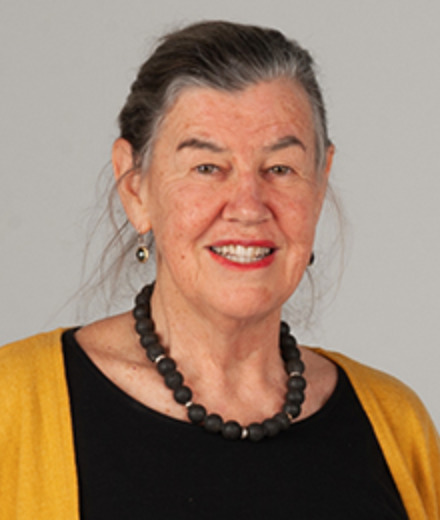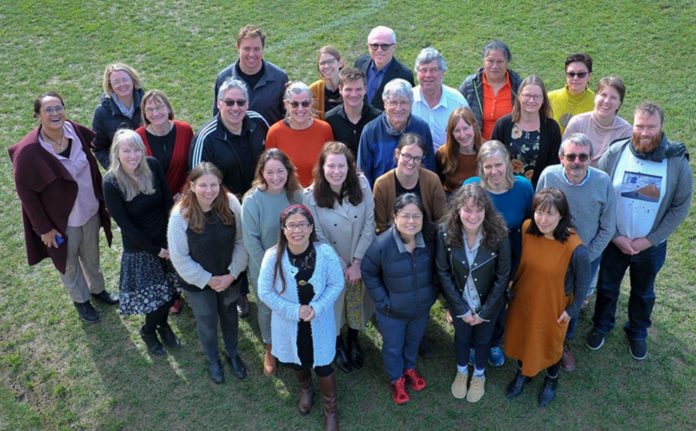Distinguished Professor Philippa Howden-Chapman CNZM QSO FRSNZ and researchers at the He Kāinga Oranga – Housing and Health Research Programme at the University of Otago, Wellington, have been awarded the 2021 Rutherford Medal, New Zealand’s top research honour, by the Royal Society Te Apārangi for their ground-breaking research into the impact of housing interventions on residents’ health and wellbeing.
The medal is awarded to Professor Howden-Chapman (pictured) and her University colleagues, Professor Julian Crane, Associate Professor Michael Keall, and Associate Professor Nevil Pierse, as well as the wider research team.
The Royal Society awards the Rutherford Medal annually. It comes with $100,000 in prize money from the Ministry of Business, Innovation and Employment (MBIE) and recognises preeminent research in any field of engineering, humanities, mathematics, sciences, social science or technology.
In a statement announcing the award, the society says while New Zealanders spend most of their time indoors, the impact of the indoor environment on health and wellbeing had been overlooked.
“Under Professor Howden-Chapman’s inspirational leadership, He Kāinga Oranga’s research has shown how straightforward housing improvements to cold, damp, and unsafe conditions can significantly reduce rates of infectious, respiratory and cardiovascular disease and deaths, particularly for children and older people.”
He Kāinga Oranga’s work has influenced innovations in government policy, including the introduction of the Winter Fuel Payment and legislation requiring landlords to meet World Health Organization (WHO) Housing and Health Guidelines, the latter developed by a WHO International Committee chaired by Professor Howden-Chapman.
For more than 20 years the He Kāinga Oranga team has been researching a wide range of housing and health issues, largely funded by the Health Research Council of New Zealand (HRC). Their researchers have shown the impact of cold and mouldy homes on the development of asthma and viral infections in infants; the harmful health effects from the use of unflued gas heaters; the extent and impact of homelessness; the benefits of insulation and heating retrofits on health; the benefits of home modifications in reducing injuries from falls; and have partnered with local councils to introduce a rental warrant-of-fitness scheme to improve the quality of rental houses.

Professor Howden-Chapman (pictured, right) says: “I’m delighted and deeply honoured that the Royal Society Te Apārangi has awarded the Rutherford Medal to He Kāinga Oranga – Housing and Health Research Programme for our research on housing, energy and health that we have carried out over more than two decades.
“Our multidisciplinary research team is committed to carrying out the highest quality research in partnership with communities to inform national and international housing policies. To receive this prestigious award is very humbling.”
The research team is now working on two far-reaching research projects. The first, an HRC-funded programme, is looking at the implementation of the WHO Housing and Health Standards. The second involves mapping the effectiveness of different types of public and community housing providers in achieving key wellbeing and health goals and is supported by a five-year $12.4 million MBIE Endeavour Fund grant.
The University’s Acting Vice-Chancellor, Professor Helen Nicholson, says she is delighted to see the tremendous contribution that Professor Howden-Chapman and her group have made to the field of housing and health being recognised.
“Their work has made a real difference to the health and wellbeing of New Zealanders.”
University of Otago Deputy Vice-Chancellor (Research and Enterprise), Professor Richard Blaikie said the University was exceptionally proud of the group’s pinnacle achievement.
“With a strong focus on the impacts of housing conditions on the health, wellbeing and prosperity of people, whānau and communities, this group has been an exemplar over many years of the value in collaborative, translational research.”
“The impacts from the many programmes the team has been involved with have led to material changes in our national housing standards and regulatory framework, and have made positive impacts for many people and communities across a range of settings.
“These have also demonstrably reduced the pressure on our public health system, and resulted in considerable healthcare savings. We congratulate the team on this highly regarded award and look forward to its future successes,” he said.



